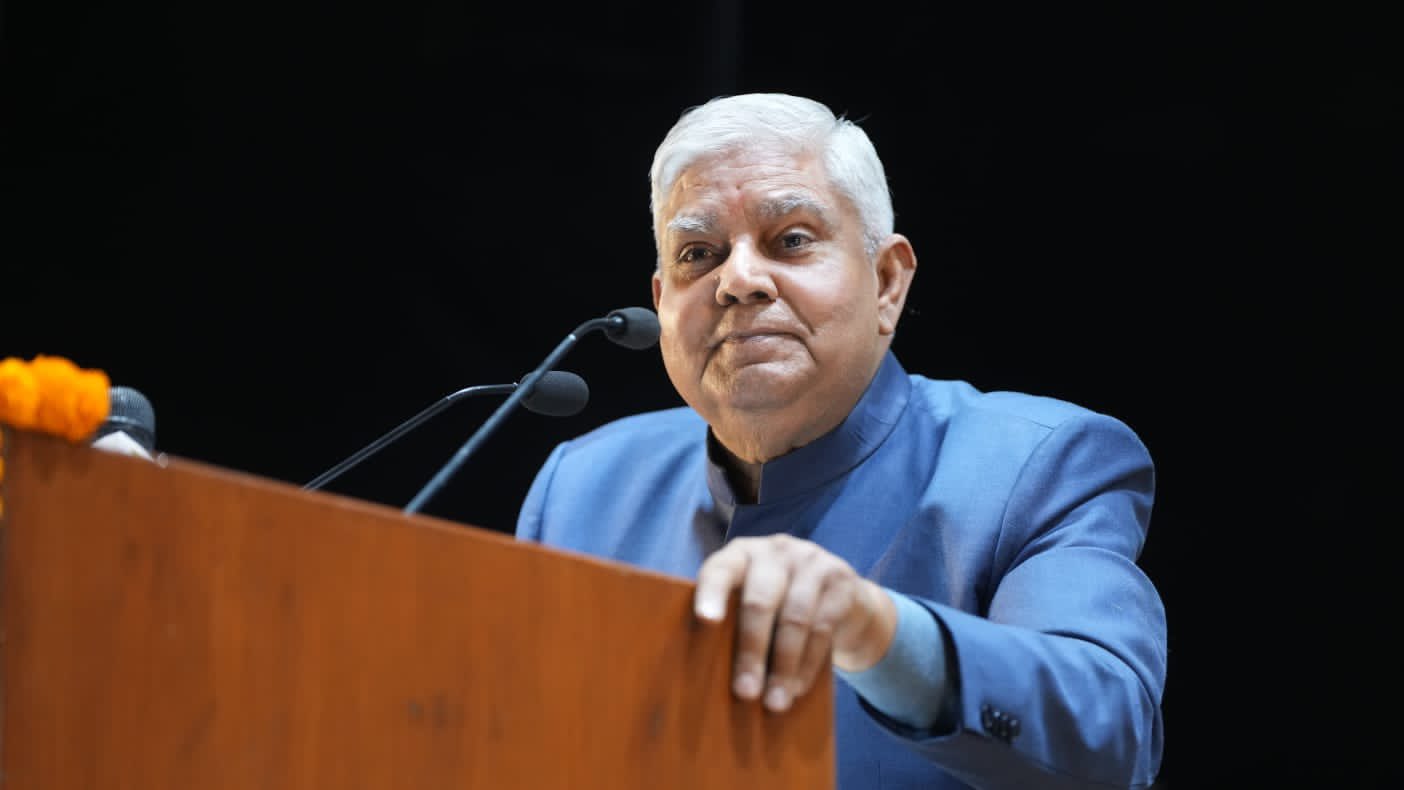The News Freedom
Chandigarh, December 23
Vice President Jagdeep Dhankar emphasized on Saturday that India’s progress hinges significantly on its universities, urging alumni to establish structured frameworks for contributions aimed at fostering educational development.
Addressing a gathering at Panjab University in Chandigarh, Dhankar appealed to alumni to commit to structured mechanisms of support, highlighting their potential to influence industries and businesses through their influential positions. He emphasized that nurturing this relationship would assure students, particularly those studying at Panjab University, of robust support from their alumni, enhancing educational opportunities and future placements.
Alumni can sensitize the industry and businesses while being in key positions. Then, anyone studying in Panjab University will get the impression that yes, their real guardians are their alumni and if they receive good education, their placement will not be a problem. @OfficialPU… pic.twitter.com/5oqcF8swdb
— Vice-President of India (@VPIndia) December 23, 2023
Some of the Global universities of the world of great fame, their reputation thrives on the strength of the alumni. Their financial reservoir is determined by alumni contribution.
One individual contributing more and another contributing small amount is immaterial. Idea is how… pic.twitter.com/neKzl6gEoP
— Vice-President of India (@VPIndia) December 23, 2023
The time has come in this country for the convergence of intellect, experience, and exposure of alumni from various institutions.
We have IIMs, IITs, science institutes… If the alumni of these institutes come together on one platform, they will help in the formulation of… pic.twitter.com/hBzA0rVWON
— Vice-President of India (@VPIndia) December 23, 2023
Reflecting on India’s socio-political landscape, Dhankar applauded the recent stride towards gender parity in the Lok Sabha and State Legislatures, facilitated by Prime Minister Narendra Modi’s efforts after three decades of considerable struggle. He questioned the feasibility of achieving equitable representation in legislative bodies.
Drawing comparisons with globally esteemed universities, Dhankar stressed the influential role of alumni in bolstering institutional reputations and financial resources. He underscored the importance of collective engagement, emphasizing connectivity over individual contributions.
Highlighting the potential of alumni from prestigious institutions such as IIMs, IITs, and scientific institutes, Dhankar proposed a unified platform for alumni to converge, pooling intellect, experience, and exposure. He envisioned their collaborative involvement in policy formulation processes, envisioning a substantial impact on shaping national policies.
Dhankar’s call for structured alumni engagement underscores the potential for alumni contributions to drive educational advancement and policy reforms in India’s academic landscape.
